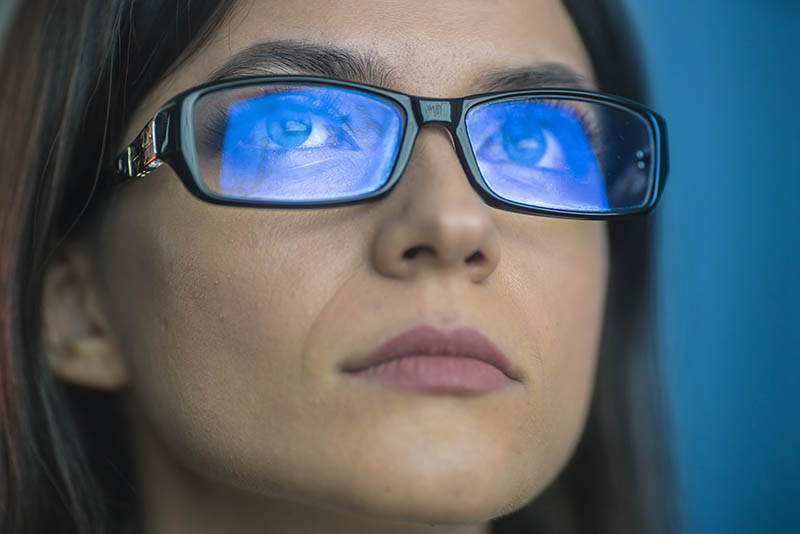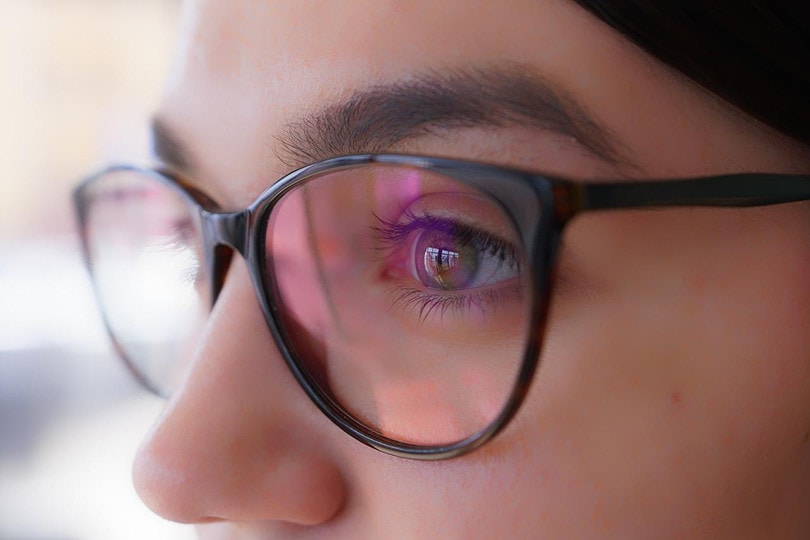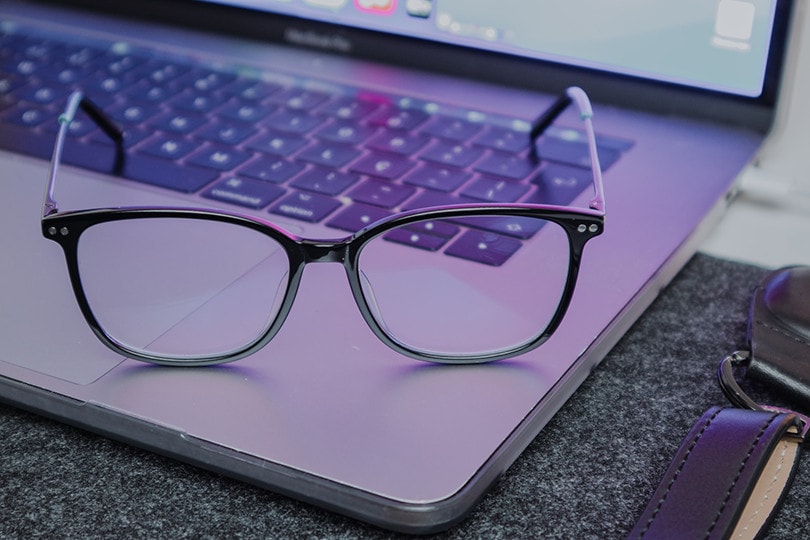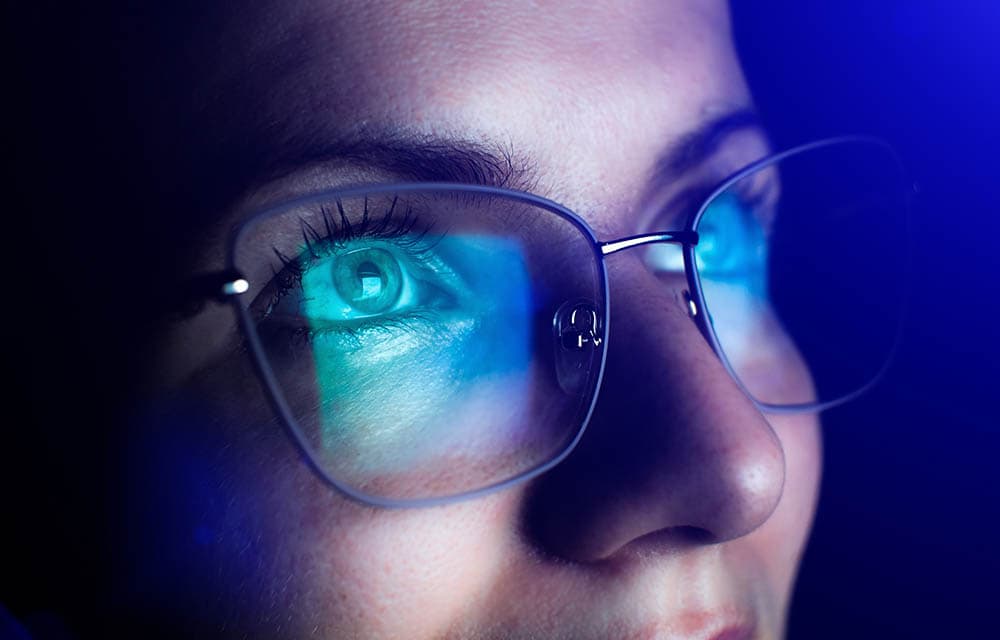Can Blue Light Cause Headaches? Potential Harmful Effect Explained
Last Updated on

Ultraviolet and blue lights are all around us—from sunlight exposure, to the devices we use each day. In fact, sunlight is the most significant source of both visible blue-violet light and invisible ultraviolet. Similarly, blue light is what causes the sky to be blue.
Albeit expected for our eyes to be naturally exposed to a certain level of blue light each day, its harmful effects persist and worsen when using electronic devices—such as our phones, tablets, laptops, and television screens. Our eyes’ daily exposure to such devices emitting blue light can lead to eye fatigue, loss of concentration, and headaches.

Blue Light Headaches and Migraine
Optical nerves are closely linked to the pain receptors in our brains. As such, eye soreness and fatigue can result from damaged optic nerves caused by exposure to too many blue light waves each day. When combining blue light and eye strain, you get some of the most common triggers for migraine headaches.
These are the main symptoms of digital eye strain (DES), also referred to as computer vision syndrome.

Other Negative Impacts of Blue Light
Effects on the Cornea of the Eye
Blue-violet light is a high-energy form of visible light, and can penetrate deep into the eye, causing harm to the retina over time. The human eye cannot block or reflect blue light, and while the eye can receive a certain amount of blue light, it is not yet confirmed how much blue light is too much.
While blue light from the sun can positively affect mood and attention span, excessive exposure to blue screen light can have a negative impact on our health. Therefore, it’s not uncommon for people who spend much time in front of a computer to complain about eye fatigue, frequent headaches, loss of concentration, and other adverse health effects.

Effects on Sleeping
Blue light enables us to read from a screen in darker settings, such as at nighttime. Therefore, our brain functions at night as if it were in daylight when reading from a blue light emitting screen. Consequently, it does not secrete the sleep hormone, melatonin, which adversely affects our ability to fall asleep and stay asleep.
Effects on Younger Generations
Children who spend many days using electronic devices are especially at risk. Studies show that,1 on average, children use electronic devices for more than 3 hours a day. As such, problems such as eye fatigue, strain, itching, and blurred vision are likely to occur as a result, which can lead to more serious problems later in life—including cataracts, macular degeneration, and even vision loss.

How Can We Protect ourselves from Blue Light?
As detailed above, too much exposure to blue light can affect various problems—from disturbed sleep, to serious health issues. This is precisely why ensuring adequate protection from blue light exposure is so essential.
One of the most effective ways to protect our eyes when using a computer or other digital device for prolonged periods of time is by wearing special computer glasses. Such glasses use special blue-cut lenses that contain a protective coating. Using an anti-reflective and UV filter that provides 100% UV protection, blue-cut lenses are designed to shield our eyes from the blue light emitted through various electronic devices.
Blue-cut lenses can be used for more than just protection when using digital devices. They offer complete protection during both indoor and outdoor activities, for everyone—whether they need prescriptive glasses or not.
Other types of glasses can be used when outdoors that also provide excellent UV protection—including sunglasses, or photosensitive glasses.

Other Tips for Protecting Your Eyes from Blue Light
- Try your best not to use any electronic devices for at least 2 hours prior to sleeping. This will allow your brain a chance to rest, allowing you to fall asleep more easily.
- When working at a computer or staring into a screen, make a habit of resting your eyes from the screen every 20 minutes, for 20 seconds, and looking at something six meters away.
- Utilize special applications and filters designed for mobile phones and other digital devices, that adjust the screen volume and reduce blue light intensity according to the period of the day.

Summing Up
As we live in a digital world, the fast-paced tempo of life and automated processes require our eyes to be on a screen more often than not. As detailed above, this can have adverse effects on our vision, sleep patterns, health, and overall well being. With the above information, tips, and tricks, we hope to provide you with the knowledge of how to protect yourself from the harmful effects of blue light emission.
Featured Image Credit: Realstock, Shutterstock
About the Author Robert Sparks
Robert’s obsession with all things optical started early in life, when his optician father would bring home prototypes for Robert to play with. Nowadays, Robert is dedicated to helping others find the right optics for their needs. His hobbies include astronomy, astrophysics, and model building. Originally from Newark, NJ, he resides in Santa Fe, New Mexico, where the nighttime skies are filled with glittering stars.
Related Articles:
How to Clean a Refractor Telescope: Step-by-Step Guide
How to Clean a Telescope Eyepiece: Step-by-Step Guide
How to Clean a Rifle Scope: 8 Expert Tips
Monocular vs Telescope: Differences Explained (With Pictures)
What Is a Monocular Used For? 8 Common Functions
How to Clean a Telescope Mirror: 8 Expert Tips
Brightfield vs Phase Contrast Microscopy: The Differences Explained
SkyCamHD Drone Review: Pros, Cons, FAQ, & Verdict
